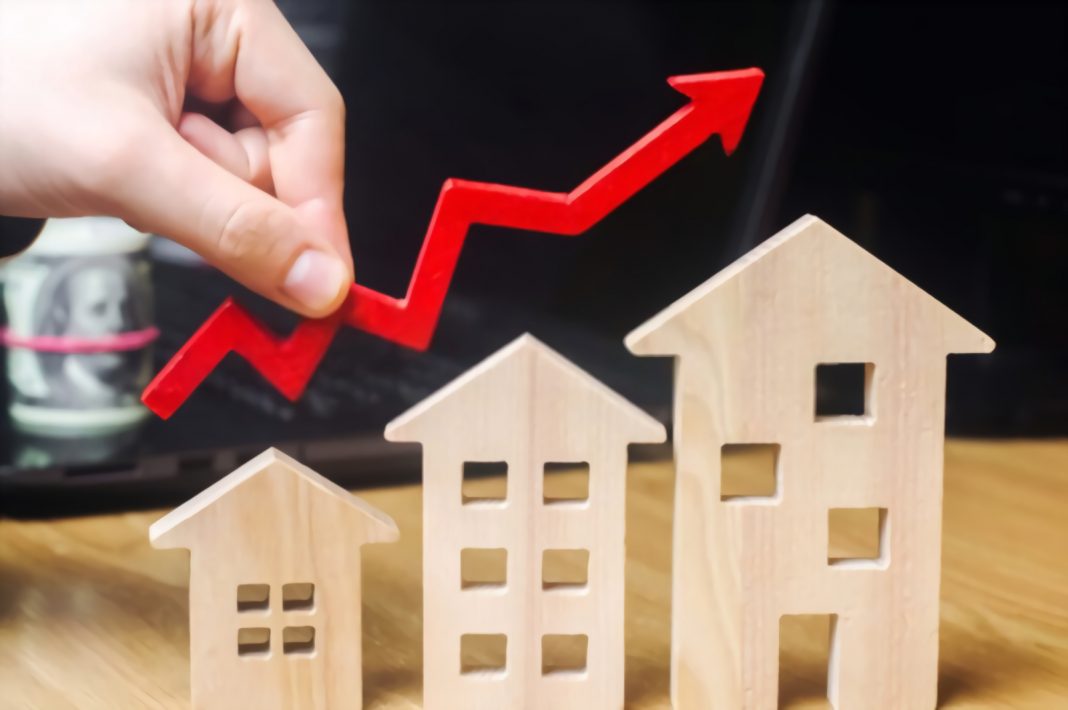Housing prices have been on the rise in the UK in recent months, making it difficult to provide housing, especially for first-time buyers. Housing prices have risen for the fourth consecutive month, dashing hopes of coming down following the lifting of restrictions and the end of the quarantine. Rising house prices in the UK have economic and social consequences and have left Britons frustrated with the government.
Rising House Prices in October
Statistics show rising house prices in the UK. Halifax, the UK’s largest mortgage lender, announced on Friday that house prices had risen for the fourth month in a row in October. According to Halifax, housing prices in the UK rose 0.9% in October from a month earlier, following a 1.7% increase in September. The bank’s figures show that the average house price in the UK has reached £270,027 ($365,000), up 8.1% from October 2020 and experiencing the strongest annual growth rate in four months.
Probability of Price Adjustment in the Coming Months
Although the Bank of England failed to raise interest rates as many investors expected, Halifax said a possible increase in borrowing costs in the coming months would reduce demand for the sector. Managing director at Halifax, Russell Galley, said borrowing costs will still be low by historical standards, and raising a deposit is likely to remain the primary obstacle for many. He added that the impact on property prices may also be tempered by the continued limited supply of properties available on the market.
The Impact of Covid-19 on Rising House Prices
Rising house prices in the UK are another long-term effect of Covid-19. The UK, like other countries, saw a sharp rise in demand for larger out-of-town homes during the Covid-19 pandemic, which pushed up prices. Temporary property tax breaks also helped boost the sector.
A 10% Increase in House Prices Compared to Last Year
Rising house prices in the UK have been swift in recent years. This has gone up by 10% or more annually in the past five months, according to Nationwide. The UK’s largest building society said in a report that prices rose 10% in September from a year earlier, down slightly from 11% in August. The double-digit increase was due to recent activity in Wales and Northern Ireland, and London continues to see the slowest growth, the lender said.
The Problems of the First-Time Buyers
Despite unprecedented low mortgage rates, the rapid rise in housing prices continues to pose financial problems for potential first-time homeowners. A recent report by the Office for National Statistics (ONS) states: “People in tourist hotspots – which have become increasingly popular for relocating buyers – were at risk of being priced out of buying a home in the areas where they worked … First-time buyers have been caught totally by surprise over the past year as the market has taken off,” said Karthik Srivats, co-founder of mortgage lender Ahaz. He added: “They have seen their budgets hammered in real terms and, while they have been helped by low rates and government support over the past year, gains in property values across the country have more than outweighed that leg up.”
Prices Rise Faster than Earnings
The Nationwide Building Society adjusts housing price estimates based on its mortgage data, and Robert Gardner, the building society’s chief economist, said that property values had continued to rise more quickly than earnings, which meant affordability was becoming more stretched. “Raising a deposit remains the main barrier for most prospective first-time buyers. A 20% deposit on a typical first-time buyer home is now around 113% of gross income – a record high,” he said.
Economists Comment on Rising House Prices
Economists believe that consumer confidence in the UK has strengthened while borrowing costs have remained low. These factors, along with the lack of housing supply on the market, have pushed up prices. House prices in the UK have been rising sharply compared to people’s incomes, so buying a home has become more difficult for first-time buyers. But mortgage prices have not risen much relative to people’s incomes.
Record Increase in Housing Prices for the Last 14 Years
The average house price in the UK has reached over £250,000. House prices registered the strongest monthly rise for 14 years in September, pushing the average cost of a home to a record high and reversing a three-month decline in annual growth. Housing prices have risen 7.4% since the beginning of the year. In addition to housing, prices in other sectors have risen to the point where the country’s annual inflation rate rose to 0.2% by the end of August, up 0.7% from the same period last month. This is the UK’s highest inflation rate in nine years.
Lack of Housing Supply in the UK
Rising house prices in the UK are also driven by shortages. Demand for all homes has increased, but new homes have become more popular with buyers than old ones. Despite this strong demand, it can be seen that supply has dropped compared to previous months. The future of the housing market will largely depend on how long the effects of Covid-19 last on various sectors, so current evidence does not provide an accurate estimate for the coming months.
As a result of the Covid-19 outbreak and severe disruption to trade, some British investors have opted to move their assets to safer destinations, such as gold and housing. Rising house prices in the UK are affected by these factors. London is still the most expensive area in the UK in terms of house prices, while the north is relatively cheaper. Housing prices are rising at a time when British purchasing power is declining on a daily basis. Economists believe that the number of homeless people in the UK will increase if housing prices do not fall in the coming months. Also, first-time home buyers will have difficulty in raising a deposit, and this will have many economic and social consequences.

